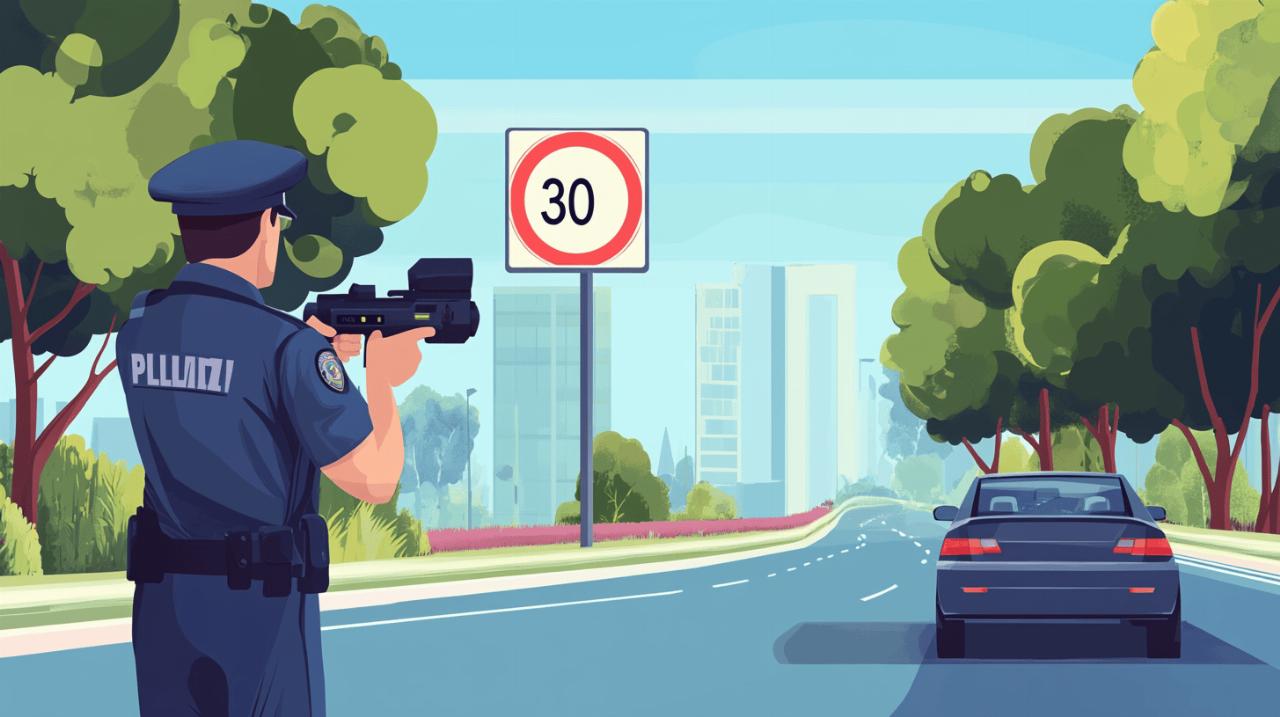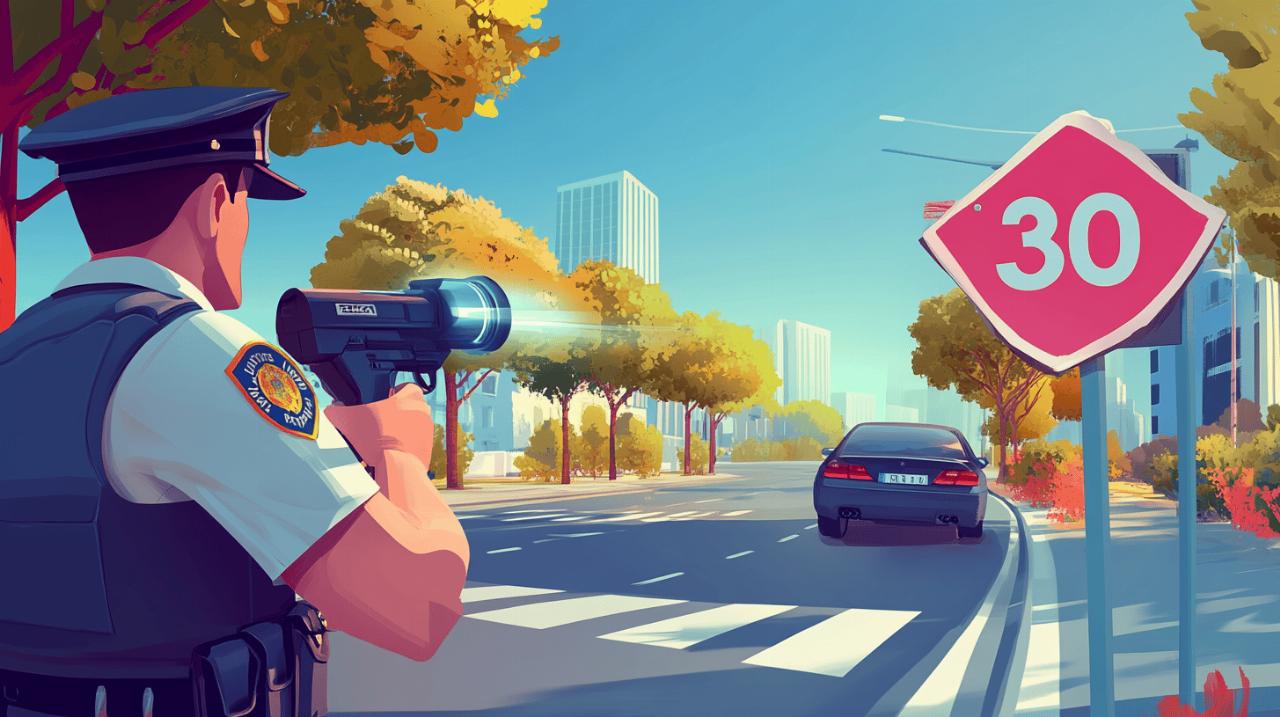Driving a motor vehicle on British roads comes with responsibilities that extend far beyond simply passing your test and getting behind the wheel. One of the most common mistakes made by motorists across the country is exceeding the speed limit, and when that breach becomes substantial, the repercussions can be severe and long-lasting. Whether it's a momentary lapse of concentration or a deliberate decision to push beyond safe limits, understanding what happens when you find yourself travelling significantly faster than permitted is essential for every driver. The consequences involve not only immediate financial penalties but also long-term effects on your driving record, insurance premiums, and even your ability to remain on the road at all.
The legal ramifications of significant speed limit breaches
When a driver is caught speeding, particularly at excessive speeds, the legal system has a structured approach to dealing with such offences. The foundation of these penalties rests on the Road Traffic Regulation Act 1984, which establishes the framework for enforcement and punishment. For those apprehended by speed cameras or police officers, the first step typically involves the receipt of a Notice of Intended Prosecution alongside a Section 172 notice. These documents must reach the registered keeper of the vehicle within a fortnight of the alleged offence, and failing to respond within the stipulated 28 days is itself an offence that can lead to further legal complications.
Points on Your Licence and Fixed Penalty Notices
The most common outcome for speeding infractions is the issuance of a Fixed Penalty Notice, which typically carries a minimum fine of one hundred pounds and the endorsement of three penalty points on the driving licence. These points serve as a formal record of the transgression and remain on the licence for a period of three years. For minor breaches, categorised as Band A offences, this standard penalty is often accompanied by the option to attend a speed awareness course, provided the driver has not participated in such a programme within the preceding three years. This educational alternative allows motorists to avoid the points altogether, though the course itself comes with a cost, usually ranging between eighty and one hundred pounds. However, for more serious violations, particularly those falling into Band B or Band C categories, the penalties escalate significantly. Band B offences, which involve speeds significantly above the limit, can result in fines calculated as a percentage of weekly income, ranging from 75 to 125 percent, alongside four to six penalty points or even a short-term driving ban lasting up to 28 days. Band C offences, representing the most excessive speeds, attract fines of 125 to 175 percent of weekly income, six points, or disqualification from driving for periods extending from a week to nearly two months. The maximum financial penalty for speeding on ordinary roads is capped at one thousand pounds, while motorway offences can attract fines up to two and a half thousand pounds.
The Threshold to a Driving Ban: Accumulating 12 Points
The endorsement system operates on a cumulative basis, meaning that multiple offences within a three-year period can quickly add up to a critical threshold. Once a driver accumulates twelve or more penalty points within this timeframe, they face an automatic disqualification from driving for a minimum of six months. This sanction, often referred to as totting up, represents a serious interruption to daily life, affecting employment, family commitments, and personal mobility. The ban period can be extended depending on the severity of the offences and whether the driver has previous disqualifications on their record. In some cases, particularly egregious speeding violations can result in immediate disqualification without the need to reach the twelve-point threshold, especially when the speed is so excessive that it demonstrates a blatant disregard for road safety. The courts have discretion in these matters and can impose bans lasting several months or even longer, depending on the circumstances. Retrieving your licence after such a ban requires a formal reapplication process, and in some cases, drivers may need to retake their driving test, particularly if the disqualification was lengthy or involved serious offences.
Enhanced Penalties for New and Provisional Licence Holders
Drivers who have recently passed their test face an even stricter regime when it comes to speeding and other motoring offences. The first two years following the successful completion of the practical driving examination are considered a probationary period, during which the standards expected are higher and the consequences for transgressions more immediate and severe. This approach reflects the statistical reality that newly qualified drivers are at greater risk of being involved in collisions and are more likely to make errors of judgement on the road.
Automatic revocation after six points within two years
For those holding a licence for less than twenty-four months, accumulating six or more penalty points results in the automatic revocation of their driving entitlement. This is a significantly lower threshold than the twelve points that apply to more experienced drivers, and it means that just two standard speeding offences within the probationary period can be enough to lose the right to drive. The revocation is immediate and applies regardless of the nature of the offences, whether they involve speeding, careless driving, or any other endorsable violation. This measure aims to reinforce safe driving habits from the outset and ensure that new drivers understand the seriousness of adhering to traffic regulations. The impact of such a revocation extends beyond the immediate inconvenience, as it requires the individual to start the process of obtaining a licence from scratch, including the financial and time costs associated with that journey.
The Process of Reapplying for Your Driving Licence
Once a new driver's licence has been revoked due to the accumulation of six points, they must reapply for a provisional licence and undertake the entire licensing process again. This means passing both the theory test and the practical driving test, which can be a daunting and costly prospect. The individual cannot legally drive in the interim period, which can have profound effects on their ability to work, attend education, or fulfil personal commitments. The reapplication process involves submitting the necessary forms to the Driver and Vehicle Licensing Agency, paying the relevant fees, and arranging lessons with a qualified instructor if they feel the need for additional training. There is no guarantee of success on the first attempt at either test, and the waiting times for test appointments can be considerable, particularly in busy areas. The entire experience serves as a powerful reminder of the importance of safe and lawful driving, and it underscores the reality that holding a driving licence is a privilege that carries significant responsibilities.
Financial implications beyond the initial fine
 While the fixed penalty or court-imposed fine is the most immediate financial consequence of a speeding offence, it is far from the only cost that drivers must consider. The broader economic impact of being caught speeding can be substantial and may continue for years after the initial incident, affecting household budgets and financial planning in ways that are not always immediately apparent.
While the fixed penalty or court-imposed fine is the most immediate financial consequence of a speeding offence, it is far from the only cost that drivers must consider. The broader economic impact of being caught speeding can be substantial and may continue for years after the initial incident, affecting household budgets and financial planning in ways that are not always immediately apparent.
Variable Fines Based on Speed and Road Classification
The calculation of speeding fines has evolved to ensure that penalties reflect both the severity of the offence and the financial circumstances of the offender. For minor infractions detected by speed cameras and dealt with via Fixed Penalty Notices, the standard one hundred pound fine applies. However, when cases proceed to court, the fines are calculated as a percentage of the offender's weekly income, with the percentage increasing according to the speed band into which the offence falls. For Band A offences, the fine ranges from 25 to 75 percent of weekly income, while Band B offences attract fines between 75 and 125 percent, and Band C offences result in penalties of 125 to 175 percent. For individuals with low or no declared income, the courts apply a deemed weekly income of one hundred and twenty pounds to ensure that the financial penalty is meaningful. The location of the offence also plays a role, as the maximum fine for speeding on a motorway is two and a half thousand pounds, compared to one thousand pounds for other roads. This distinction reflects the increased potential danger associated with excessive speeds on high-speed routes. Pleading guilty at the earliest opportunity can result in a reduction of up to one third of the fine, while contesting the charge and being found guilty at trial often leads to higher penalties, reflecting the additional court time and resources involved.
The impact on motor insurance premiums
Perhaps the most enduring financial consequence of a speeding conviction is the effect it has on motor insurance premiums. Insurers view drivers with penalty points as higher risk, and they adjust their premiums accordingly. Research indicates that a single speeding conviction can increase insurance costs by around thirty percent, which translates to an additional three hundred to five hundred pounds per year for many drivers. This increase typically applies for a period of five years, meaning that the total additional cost over that time can easily reach several thousand pounds. For drivers who accumulate multiple offences or who are convicted of more serious speeding violations, the increases can be even more dramatic, and in some cases, insurers may refuse to provide cover altogether, forcing the driver into specialist high-risk insurance markets where premiums are considerably higher. The obligation to declare penalty points and convictions when obtaining or renewing insurance is a legal requirement, and failing to do so can invalidate the policy, leaving the driver without cover and potentially facing prosecution for driving without insurance, which carries its own severe penalties including unlimited fines and disqualification.
Mitigating circumstances and alternative penalties
While the penalties for speeding are clearly defined, the legal system does recognise that not all offences are identical and that there may be circumstances that warrant a more nuanced approach. Understanding the options available and the criteria for their application can help drivers navigate the aftermath of a speeding offence more effectively.
Speed Awareness Courses as an Option to Avoid Points
Speed awareness courses represent a valuable opportunity for drivers who commit minor speeding offences to address their behaviour without receiving penalty points on their licence. These courses, which typically last around four hours and can be completed either in person or online, are designed to educate participants about the dangers of speeding and the importance of adhering to speed limits. The courses are offered at the discretion of the police force involved and are generally available to drivers who have exceeded the speed limit by a relatively small margin and who have not attended such a course within the previous three years. The cost, usually between eighty and one hundred pounds, is borne by the driver, but the absence of penalty points makes it an attractive alternative for many. The courses do not involve a test, but participants are expected to engage actively with the material and demonstrate a willingness to reflect on their driving behaviour. Completion of the course means that the offence is not recorded as penalty points on the driving licence, though it does remain on the police record for three years, which affects eligibility for future courses. It is important to note that the option of a speed awareness course is not available for more serious offences or for drivers who have accumulated multiple violations in a short period.
Severe offences: criminal records and potential imprisonment
For the most serious speeding offences, particularly those that result in collisions causing injury or death, the consequences extend far beyond fines and licence endorsements. Offences such as dangerous driving or causing death by dangerous driving are treated as serious criminal matters and can result in custodial sentences, substantial fines, and lengthy driving bans. Causing death by dangerous driving, for instance, carries a maximum sentence of fourteen years imprisonment, an unlimited fine, and a mandatory minimum disqualification of two years, with the requirement to pass an extended driving test before the licence can be restored. These offences remain on the driver's criminal record for eleven years, which can have profound implications for employment, travel, and personal reputation. Even offences that do not result in injury or death but involve extremely excessive speeds can lead to court appearances where the magistrates or judges have the power to impose immediate disqualification, significant fines, and in some cases, community service or other penalties. The courts take into account factors such as previous convictions, the driver's attitude, and whether there were any aggravating circumstances such as poor weather conditions or the presence of pedestrians or other vulnerable road users. Legal representation from a specialist driving solicitor can be invaluable in these situations, as they can present mitigating circumstances, challenge evidence where appropriate, and argue for the least severe penalty consistent with the facts of the case.





